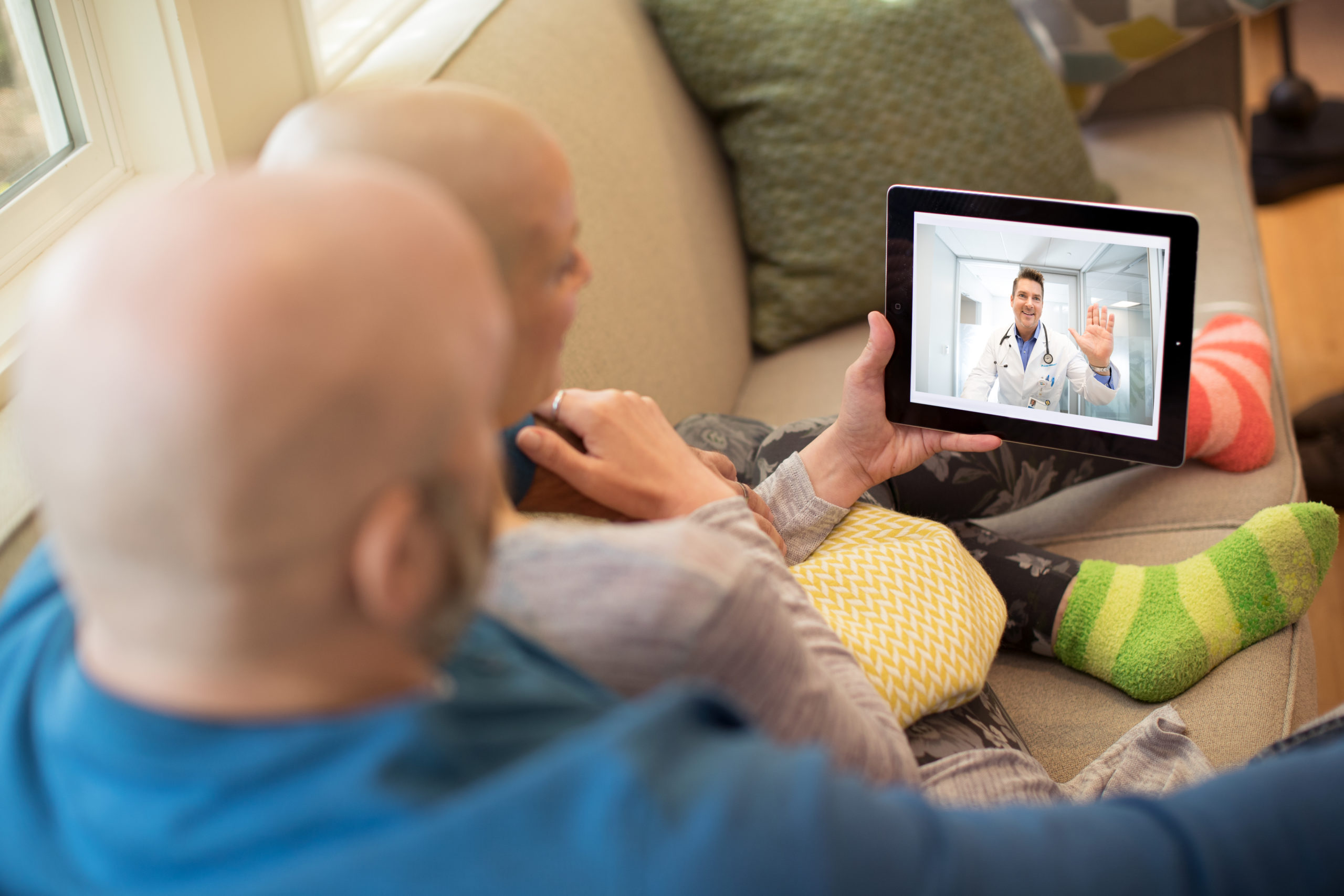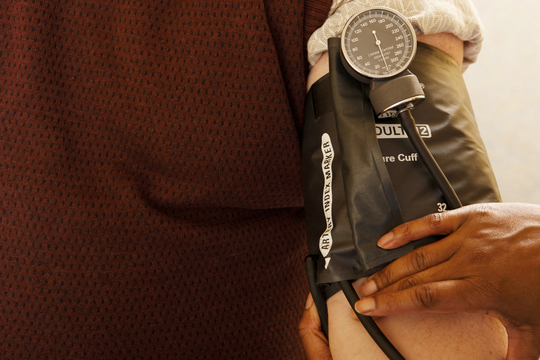
For National HIV Testing Day, we offer this following post written by community practitioners, advocates, activists and researchers with the Kaiser Permanente Community-Based HIV Test and Treat Initiative. Through the initiative they have found that community-based organizations play a critical role in serving people living with HIV when they are able to link their medical care with social, economic and behavioral support services – the total health of an individual.
—————–
In July 2015, the White House updated its National HIV/AIDS Strategy for the United States, with a vision to ensure that new infections are rare and all people living with HIV (PLWH) have equal and unfettered access to HIV clinical care. Central to achieving this vision for the country’s 1.2 million PLWH are recommendations for widespread linkage to and retention in comprehensive HIV care, support for HIV medical adherence, and achievement of viral suppression. Unfortunately, racial/ethnic disparities persist in linkage to care, retention in care, and viral suppression. Community-based organizations (CBOs), and particularly AIDS Service Organizations, may be better able to provide more tailored approaches to reach and support socially vulnerable and minority PLWH, but there is little guidance in the national strategy regarding how CBOs can support these goals.
For World AIDS Day 2015, we offer our recommendations for CBOs to achieve these National Strategy goals, as a collective of community practitioners, advocates, activists and researchers with the Kaiser Permanente (KP) Community Based HIV Test and Treat Initiative. The Kaiser Permanente HIV initiative began in 2013 and involves implementation and evaluation of innovative community-based and CBO-led interventions to increase linkage to and retention in HIV care among Black and Hispanic men who have sex with men (MSM) in Los Angeles, CA; African American women and transgender women in Oakland, CA; African Americans in the rural and suburban southeast; and people who use drugs and those recently released from prison in the New York metropolitan area. While outcome evaluation findings are not yet available, our collective experience over the past three years demonstrates the following findings to support more effective CBO interventions:
- Community-based organizations (CBOs) can play an instrumental role in reaching PLWH, but require strong relationships with clinics to support linkage to and retention in care.
CBOs connected to racial/ethnic minority or socially vulnerable groups (e.g., prison releases, MSM of color, transgender women) and holistic AIDS services may have better reach to PLWH within these communities, than may non-community-based HIV clinics. Through partnership with CBOs, clinics may extend their reach for linkage and retention in care. CBOs with in-house clinical services and those effectively partnered with clinics appear to be most successful in recruiting and retaining patients who have fallen out of care. Culturally and linguistically tailored services were uniformly identified as central to meeting the needs of these clients.
- CBOs can support more effective HIV care by helping clients understand and recall medications and information on clinical indicators, such as CD4 and viral load.
While clinical care and initiation of and adherence to antiretroviral therapy (ART) can improve quality and longevity of life, meaningful engagement in HIV care and treatment requires understanding and recall of medication regimens and clinical indicators of health. Many participants reached through this initiative reported recent receipt of CD4 counts and viral load but could not recall the numbers, impeding their use of this information as a means of tracking their health. Low health literacy was also a concern, with participants reporting difficulties reading their medication bottle labels or understanding when to take their medications. CBOs can support patients’ health literacy related to medications and reinforce strategies for recall and interpretation of health indicators following clinical care appointments.
- CBOs’ promotion of effective engagement in HIV care for socially vulnerable populations requires support for clients’ linkage to care for key comorbidities, as well.
Vulnerable PLWH commonly present with multiple comorbidities, including substance use and mental health issues, as well as chronic diseases increasingly faced by the nation’s aging HIV-positive population. Linking clients to clinical care broadly, not just HIV care, is critical and may better support more cost-effective funding streams to help sustain CBOs working with PLWH by extending these health support services to vulnerable populations regardless of HIV status.
- Life-stabilizing wraparound services and trauma-informed care are needed to support HIV care utilization and medical adherence given the social vulnerabilities faced by PLWH.
HIV care utilization can only be prioritized when their clients’ diverse range of non-medical social needs are simultaneously supported through wrap-around services, including transportation assistance, housing, food security, and group support. A disproportionate burden of abuse histories across the lifespan is also reported among populations served through this initiative, and trauma-informed care and social services have been identified as requirements to support broader HIV and other health care utilization.
- Social support as part of palliative care remains an important CBO service for PLWH.
Life-enhancing benefits of ART are not reflected in the health status of our most socially and medically vulnerable PLWH, some of whom learn of their HIV status when they are already at Stage 3 disease progression, rendering a need for complementary palliative care support well into the 3rd decade of the epidemic. Too often social support networks are inadequate for PLWH, and end of life social support from CBO representatives may offer the only non-clinical social support available to these clients. Training and support for CBO staff providing these services is vitally important to help sustain CBO continuity of care.
We offer these recommendations for CBOs to support their capacities to extend the reach of clinical care and link and retain racial/ethnic minority and socially vulnerable PLWH in care, as we believe that elimination of health disparities in care utilization, medical adherence and HIV-related life expectancy requires a community-centered approach best achieved via CBOs. We believe that engagement of CBOs in partnership with HIV clinical care can accelerate the progress of the National HIV Strategy and achieve the Strategy’s vision with regard to “unfettered access to high quality, life-extending care, free from stigma and discrimination.”
Authors:
Kaiser Permanente, National Community Benefit, Oakland CA
Alexandra Caraballo, National Manager, Philanthropy
John Edmiston, National Manager, Community Engagement
Pamela Schwartz, MPH, Director Program Evaluation
Melissa Ramos, Evaluation Consultant
UC San Diego Center on Gender Equity and Health- UCSD GEH, San Diego CA
Anita Raj, PhD, Professor of Medicine and Global Public Health
Lianne Urada, PhD, Assistant Professor of Medicine and Global Public Health
Laramie Smith, PhD, Assistant Professor of Medicine and Global Public Health
Sankari Ayyaluru, Research Coordinator
John Wesley Community Health (JWCH) Institute, Los Angeles CA
Sergio Avina, Division Director
Christopher Hucks-Ortiz, MPH, Evaluation Specialist
Institute for Public Health Innovation (IPHI), Prince Georges County MD
Bradley Boekeloo, PhD, Evaluator, University of Maryland
Abby Charles, MPH, Senior Program Manager
Public Health Institute (PHI), Oakland CA
Tooru Nemoto, PhD, Research Program Director
Mariko Iwamoto, Project Director
The Fortune Society, Long Island City NY
Nilda Ricard, Director Drop in Center-Health Services, Fortune Society
Brendan O’Connell, MSW, Senior Program Analyst
Jahad Robinson, Transitional Specialist
North Jersey Community Research Initiative (NJCRI), Newark NJ
Corey Rosmarin-DeStefano, Director of Clinical Services
Sharif Hall, Data Coordinator
Liliane Windsor, PhD, MSW, Assistant Professor, The University of Illinois at Urbana-Champaign
ASK4Care/Duke University, North Carolina
Beth Stringfield, Project Coordinator
Sara LeGrand, PhD, Assistant Research Professor of Global Health
Women Organized to Respond to Life Threatening Diseases (WORLD), Oakland CA
Cynthia Carey-Grant, Executive Director
Stephanie Cornwell, MA, Program Services Director
Samantha Feld, MPH, Evaluation Data Manager, Cardea Services, Oakland CA




